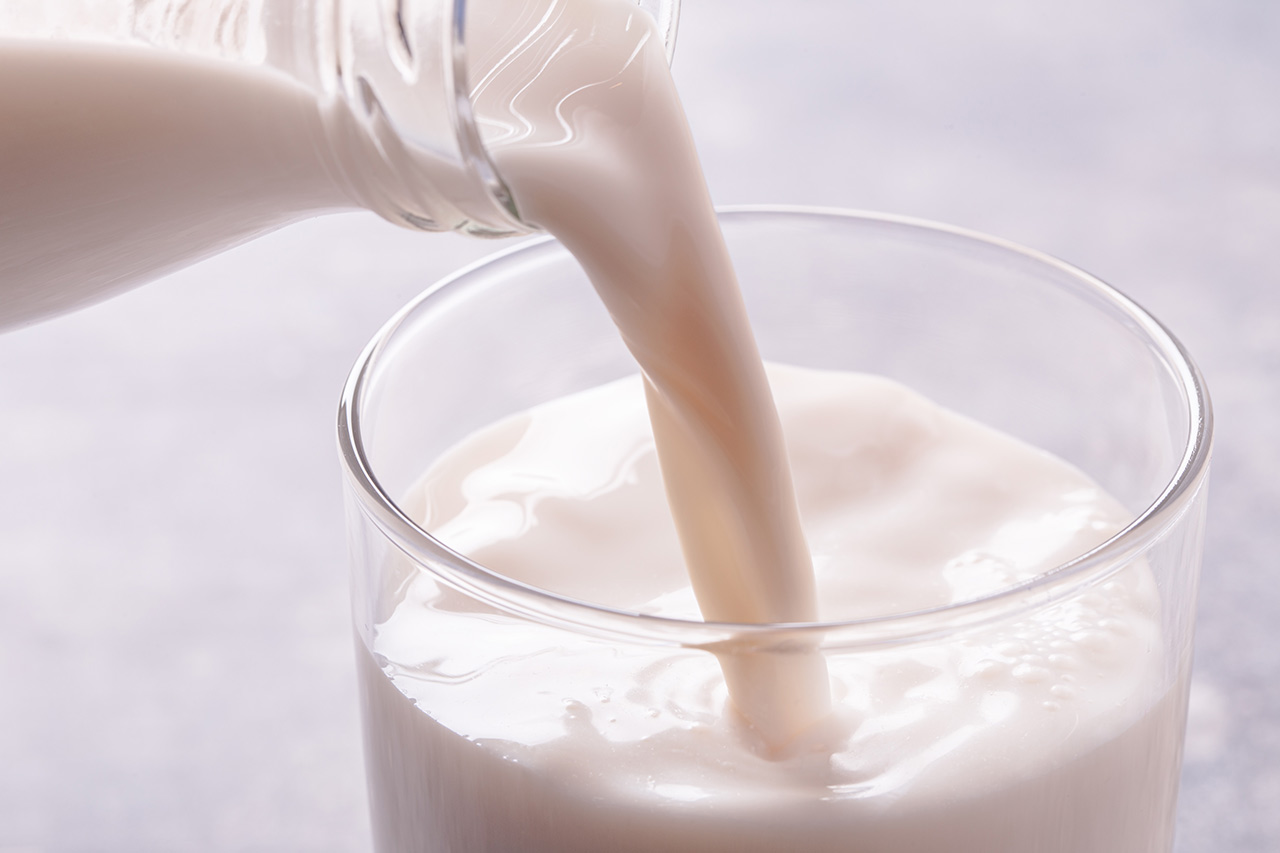Agrifood
Alcimed Position Paper – FOOD 2050
Position paper 'Food : the consumer guide in 2050' (in French). At Alcimed, we have identified the major and emerging trends that are shaping our way of consuming and imagined how they will impact ...

The French dairy industry is a pillar of French culture and economy. Considered as one of the most competitive dairy industries in the world according to FranceAgriMer in 2018, it collected 32.8 billion liters in 2019, supplying more than 90% of the French people’s consumption, who are among the largest cheese and butter consumers. However, the consumption of dairy products has been declining over the last ten years and the French are increasingly interested in plant-based alternatives. Considered more ethical, beneficial to one’s health and less harmful to the environment, these products appeal to consumers and to leading players in the dairy industry, as shown by Danone and Bel’s acquisitions, which have fully embraced the adventure of plant-based products. Alcimed brings to you the opportunities related to plant-based alternatives.
Flexitarians represent almost 40% of the French population today compared to 25% 5 years ago. According to Euromonitor, 50% of the world population would limit its consumption of certain animal products.
The end of lockdown has stimulated local and organic purchases more than ever, but we had already been observing a fundamental change in consumption habits, for several years. The French are giving more and more meaning to their purchases, concerned about their well-being, their health and the environment. Flexitarians represent almost 40% of the French population today compared to 25% 5 years ago. According to Euromonitor, 50% of the world population would limit its consumption of certain animal products. Some political powers even encourage this transition, as is the case in New Zealand where school curriculum encourages children to reduce their consumption of meat and dairy products to fight climate change.
Along with meat, now it’s milk’s turn to be abandoned: consumption of “real milk” has fallen by 25% over the last fifteen years in France and the United States. This led to the bankruptcy of the New York milk giant, Dean Foods, among other things.
Conversely, plant-based drinks are still on the rise in 2019 (3.6% in volume). They represent today more than 12% of the world’s milk consumption. The Arla Foods and Sodiaal cooperatives have recently launched plant-based brands JÖRĐ and Candia Végétal. After milk, some manufacturers are betting that plant-based products will also be used in other dairy products: Bel, for example, bought 80% of the vegetal cheese specialist All in Foods.
Plant-based alternatives stand out with a strong value of naturalness and explore new flavors and textures, depending on the plants used.
In 2017, European court of Justice prohibited the use of the terms “milk”, “cheese” or “butter” for plant-based products. The purpose of these products, such as “vromages” (nickname for plant-based cheeses), is not only to imitate dairy products as closely as possible. A few years ago, the plant-based yoghurt section was only made up of soya pots. Eurial, Lactalis, Danone and Andros have embarked on the adventure and now offer real gourmet alternatives to traditional yogurts. They stand out with a strong value of naturalness and explore new flavors and textures, depending on the plants used. The segment recorded a 7.8% growth even though yogurt sales declined (1.3% in 2018). On the “vromage” side, there are now “camemberts” with sage and “feta” with olives that aim to surprise the consumer rather than mislead him with ersatz.
After soybeans, sources used for these products have multiplied: almonds, oats, rice, coconut, pistachio, or even hazelnuts. What these plant-based alternatives to dairy products have in common is that they can be consumed by people who are lactose intolerant (more than 30% of the French population) and their production emits less greenhouse gases than that of animal milk. Each of these sources though offers its own subtleties.
Plant-based alternatives offer more or less advantageous nutritional values: coconut milk is low in calories (but low in proteins), rice milk is rich in carbohydrates, while pea milk would be excellent for its calcium and protein intake. We can also note that these plant-based drinks are enriched to better meet our needs while the nutritional benefits of animal milk are questioned.
The organoleptic properties of the sources for plant-based alternatives are also different. They either imitate animal milk or offer new experiences. Oat milk has conquered millennials and baristas while hemp milk would be the perfect choice for pancakes. In short, there is an ideal plant-based alternative for every person and every occasion.
Moving from dairy to plant-based is a real groundwork in terms of production, formulation, process, marketing and CSR policy. As these products convey a more environmentally friendly image, entering this segment represents a genuine social commitment. On the environmental side, despite its efforts, the dairy industry is increasingly being singled out, although the impact of the production of plant-based alternatives is also being closely scrutinized.
Whether be it for health (intolerance, allergies, nutritional benefits), ethical or environmental reasons, consumers are increasingly sensitive to plant-based alternatives. These products are no longer simple substitutes but new offers in their own right, offering new markets for manufacturers. Each plant source enables innovation by bringing new flavors and textures as-well-as specific nutritional benefits. For manufacturers, these products are also a way of establishing their social commitment. It is now a matter of betting on the future of what was once mere fashion and designing this revolution in plant-based products. How soon can plant-based become the norm? What will be the alternative basis of tomorrow? Finally, we can wonder about the future positioning of the major players in the dairy industry: mixing dairy and plant-based or choosing a total transition to plant-based products?
About the author
Mathieu, Project Manager in Alcimed’s Agri-food team in France